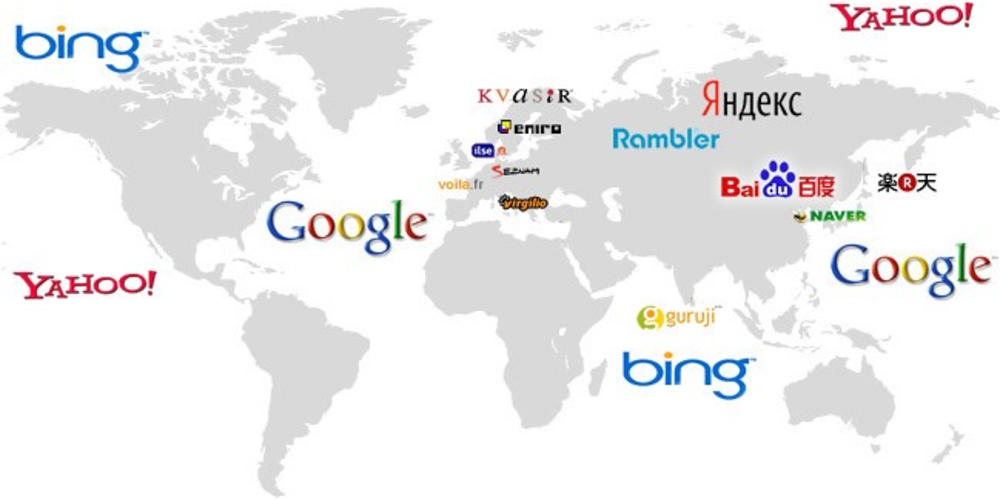Unlocking the Secrets to Efficient Internet Searches: Simplify Your Life

In an era where the internet has become the go-to source for virtually every kind of information, mastering the art of searching online is more than a convenience—it's a necessity. The vast ocean of data available at our fingertips is both a treasure trove and a labyrinth. Navigating it efficiently can save you time, enhance your learning, and even provide you with opportunities that might otherwise be missed. This article is designed to guide you through the secrets of proper search on the Internet, illuminating the path to making your life significantly easier by harnessing the full potential of search engines. Embark on an expedition that will revolutionize your online information discovery process.
The Importance of Efficient Search Techniques

Imagine having the ability to access the exact piece of information you need within seconds. Whether it's for academic research, personal interest, or professional development, knowing how to effectively search the internet can be a game-changer. It's not just about saving time; it's about maximizing the quality of the information you obtain. In a world where time is precious, and information is plentiful, being adept at online searching is an invaluable skill. Let's explore the techniques and advice that will turn you into an expert at searching online.
Understanding Search Engines
Understanding how search engines operate is crucial for effective internet searching. Google, Bing, and Yahoo utilize algorithms to navigate through billions of web pages, aiming to deliver the most pertinent results. However, they rely on the input you provide. Knowing the right keywords, phrases, and search techniques can dramatically enhance the relevance and quality of your search results.
Keywords are Key
The initial step to enhancing your search efficiency is to become adept at utilizing keywords. Keywords represent the words or phrases you input into the search field. They should be carefully chosen to reflect the exact information you're looking for. Start by brainstorming the main concepts related to your search topic and consider synonyms or related terms that might yield better results. The more specific and targeted your keywords, the more relevant your search results will be.
Advanced Search Techniques
- Quotation Marks: By enclosing a phrase in quotation marks, you instruct the search engine to search for those specific words in that precise sequence. This is incredibly useful for finding specific phrases, titles, or even exact lines of text.
- Minus Sign (-): If you want to exclude a word from your search results, place a minus sign directly before it. This is particularly handy when the word has multiple meanings or is associated with something you're not interested in.
- Site-Specific Search: Use the 'site:' function to search within a specific website or domain. This is great for when you're looking for information and trust the source, but can't find what you need through the site's own search function.
- File Type Search: If you're looking for a specific type of document, such as a PDF, PowerPoint, or Excel file, you can use the 'filetype:' function followed by the file extension to narrow down your search.
Utilizing Search Engines Beyond Google

While Google is the most widely used search engine, it's not the only one out there. Depending on the nature of your search, other search engines like Bing, Yahoo, DuckDuckGo, or even academic databases and directories might provide better results. Each search engine possesses its distinct advantages and methods for indexing, thus exploring various options can occasionally yield surprising advantages.
Assessing the Credibility of Online Information
An essential aspect of efficient internet searching is the ability to assess the credibility of the information you find. The internet is filled with varying levels of information quality, and it's important to note that not every source holds the same credibility. Look for information from reputable sources—academic journals, official government websites, and respected news organizations are generally reliable. Additionally, cross-referencing information across multiple credible sources can help ensure accuracy.
Organizing Your Search Results
Once you've mastered the art of finding the right information, organizing it is the next vital step. Bookmarking web pages, using note-taking apps, or maintaining a digital library can help keep the information you find well-organized and easily accessible for future reference. This not only saves time but also enhances your ability to draw connections between different pieces of information.
The Power of Proficient Internet Searching

Mastering the art of searching the internet is akin to having a superpower in today's information-driven world. It's about more than just finding what you're looking for; it's about doing so with efficiency, precision, and discernment. By understanding how search engines work, mastering advanced search techniques, exploring beyond Google, assessing the credibility of sources, and organizing your findings, you equip yourself with the tools needed to navigate the vast seas of the internet with confidence. Make your life easier and your searches more productive by unlocking the secrets of proper search on the internet. The world of information is yours to explore—search wisely.





